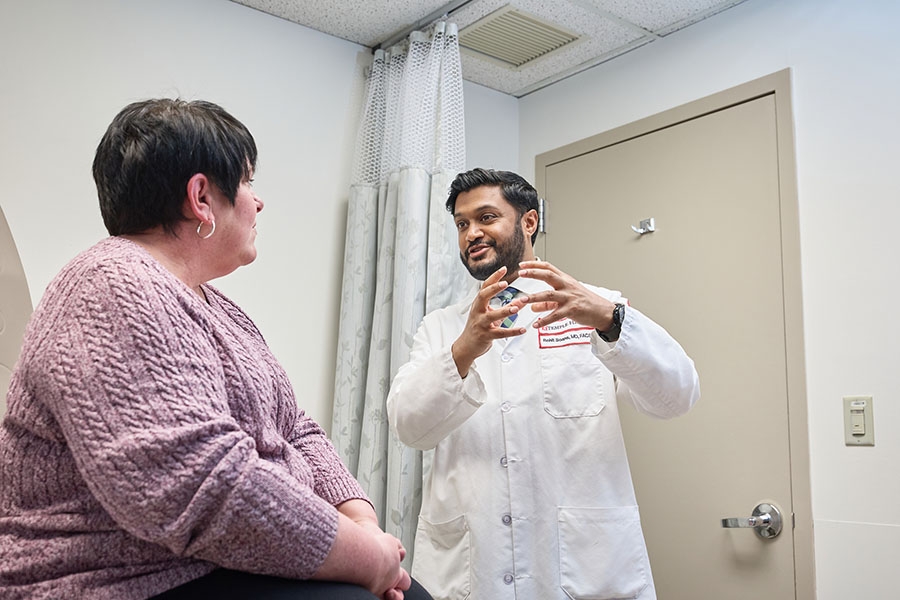You're enjoying a pick-up basketball game or a friendly game of tennis, and suddenly you feel a popping sensation in your knee. You fall to the ground in pain and don't feel stable enough to get up and continue your activity. Your first thought is, "what could I have done to my knee?"
There's a chance you may have injured the anterior cruciate ligament, or ACL. This is one of the major ligaments in your knee and one of the most commonly injured. The ACL helps to keep your knee joint stable so when an injury to this ligament occurs, it makes the knee joint unstable.
ACL injuries most commonly occur during sports that require sudden changes in direction, stopping and starting, or jumping. Although these injuries are common in some contact sports — such as football, basketball and soccer — you don't need to come into contact with another player to be injured.
In fact, about 80% of ACL tears occur without contact.1 More often, the athlete suddenly changes direction or quickly stops and then feels their knee give out.
Symptoms of ACL Injuries
- Popping sound or sensation in the knee
- Swelling and inflammation, usually occurring quickly after injury
- Pain — severity can vary depending on the extent of the injury
- Reduced range of motion in the knee
- Instability when placing weight on the affected leg
- Inability to walk or continue activity
Seeing a Doctor for Treatment
If you suspect you may have injured your ACL, make an appointment with one of our sports medicine specialists. During the evaluation, your doctor can determine if the ACL is affected by hearing about what caused the injury, doing a physical exam and ordering imaging tests.
Depending on the severity of the injury, treatment may include:
- Icing and elevating the knee
- Temporarily staying off the affected leg or using crutches
- Wearing an ace bandage around the knee to reduce swelling
- Taking anti-inflammatory medication
- Using a knee brace to provide added support
- Going to physical therapy to strengthen the muscles around the knee and improve range of motion
- Having surgery – this is a last resort option but may be necessary if your ACL is torn badly, your knee gives out during regular walking or if you're an athlete who wants to resume playing


